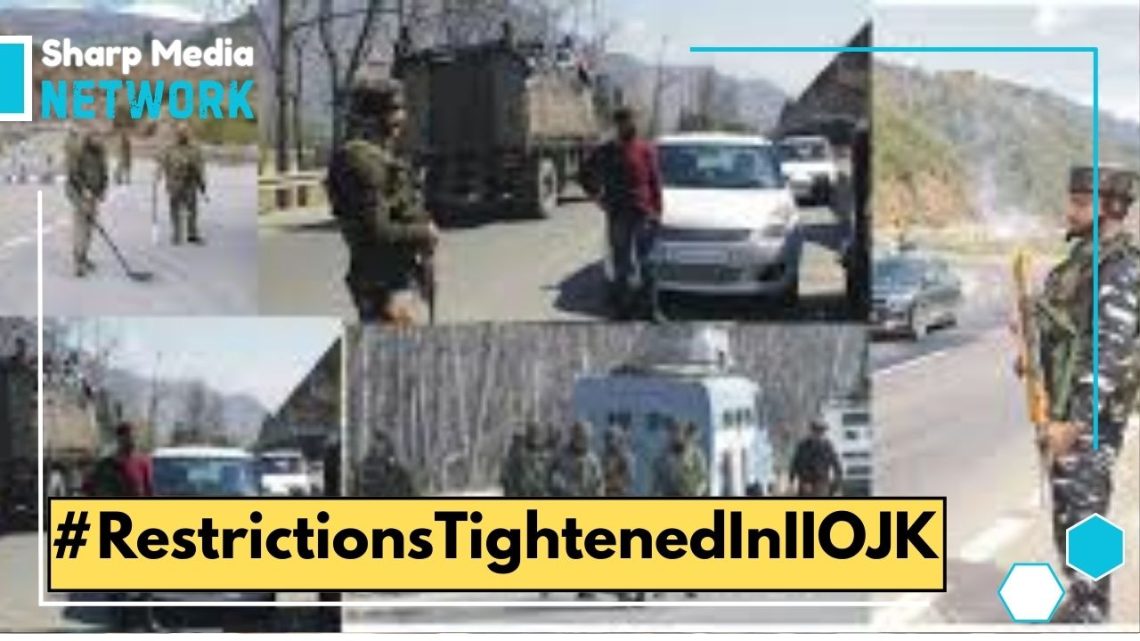
Tightened Military Grip on Srinagar-Jammu Highway Ahead of Modi’s Visit to IIOJK
April 13, 2025As Indian Prime Minister Narendra Modi prepares to visit IIOJK, the region is witnessing a dramatic surge in military presence, sparking fresh fears among civilians.
Indian authorities have intensified military deployment and security restrictions along the crucial Srinagar-Jammu highway in Indian Illegally Occupied Jammu and Kashmir (IIOJK), further tightening the noose around civilian life in the region.
Additional contingents of Indian Army, Central Reserve Police Force (CRPF), and police have been deployed at several strategic points across Kathua and Udhampur districts. The Srinagar-Jammu highway, a vital lifeline for the region, is now dotted with dozens of new checkpoints where the movement of vehicles and residents is being strictly monitored.
The security apparatus has been bolstered with the use of sniffer dogs and advanced surveillance technologies. Every vehicle entering the Kashmir Valley is being thoroughly scanned, adding to the already oppressive atmosphere that locals have been enduring for years under the occupation.
While Indian officials claim the heightened security is a response to recent militant attacks and ongoing cordon-and-search operations, people on the ground view these measures quite differently. Residents and rights observers argue that the increased militarization is less about safety and more about suppressing dissent and stifling the Kashmiri people’s demand for their right to self-determination as guaranteed by the United Nations.
Locals describe the current situation as “suffocating,” with freedom of movement further curtailed and fear growing across towns and villages that lie along the highway. “They say it’s for our protection, but it feels more like a siege,” said one resident of Udhampur.
Tensions are also rising in Reasi district, where security has been further tightened ahead of Prime Minister Narendra Modi’s scheduled visit on April 19. According to Indian media, Modi will inaugurate the Udhampur-Srinagar-Baramulla Rail Link (USBRL) project—a move seen by critics as an attempt to project normalcy in a region still grappling with unrest, repression, and ongoing military occupation.
Observers note that such high-profile visits are often accompanied by mass detentions, communication blackouts, and blanket surveillance—adding yet another layer of hardship to daily life for Kashmiris. While infrastructure projects like the USBRL may be touted as symbols of progress, for many in the region, they serve as backdrops to deeper political realities marked by systemic control and disenfranchisement.
The increased deployment and strict surveillance not only disrupt everyday life but also send a clear message: dissent will be met with force, and civilian spaces will remain under the constant gaze of the state.

